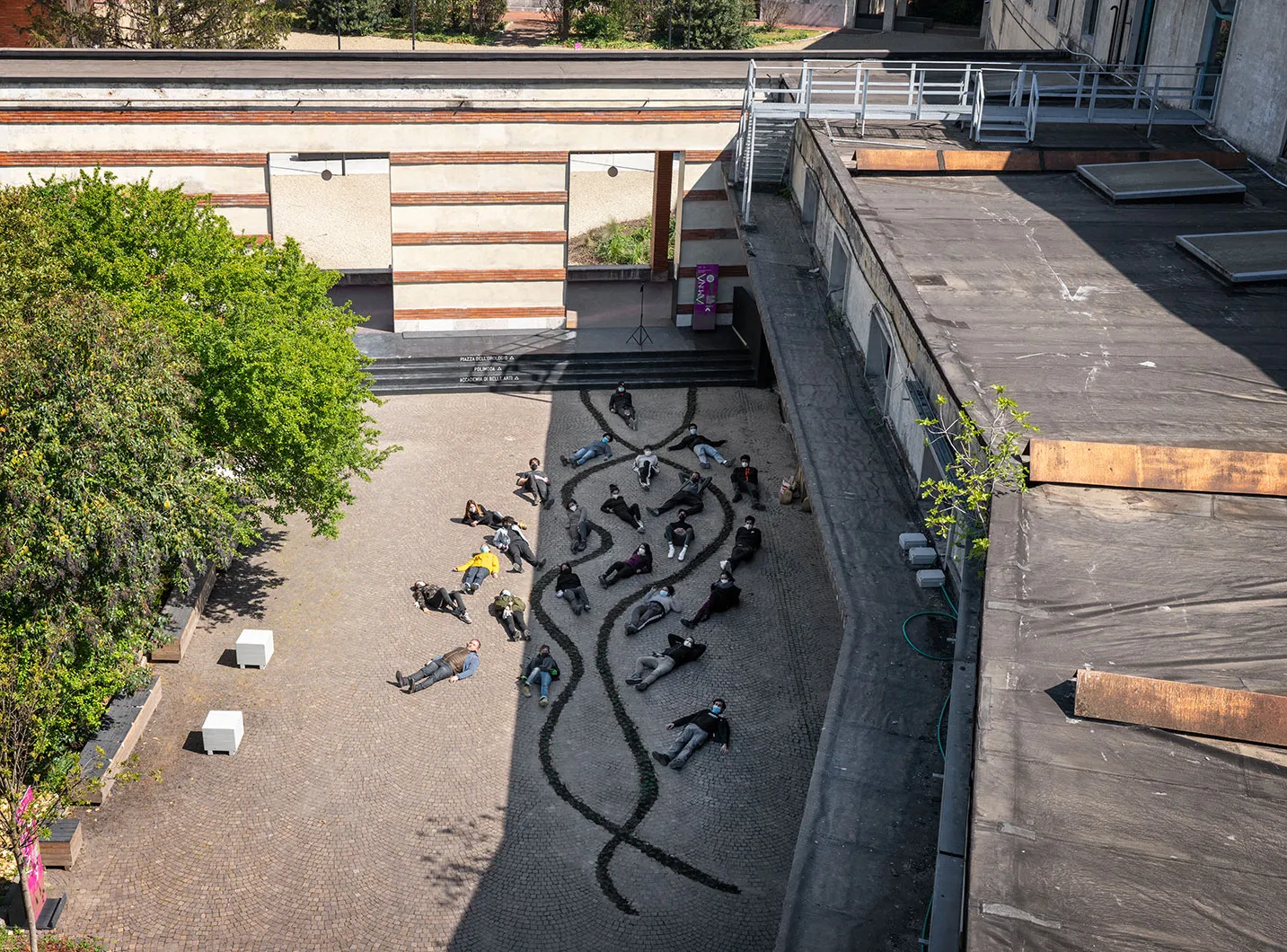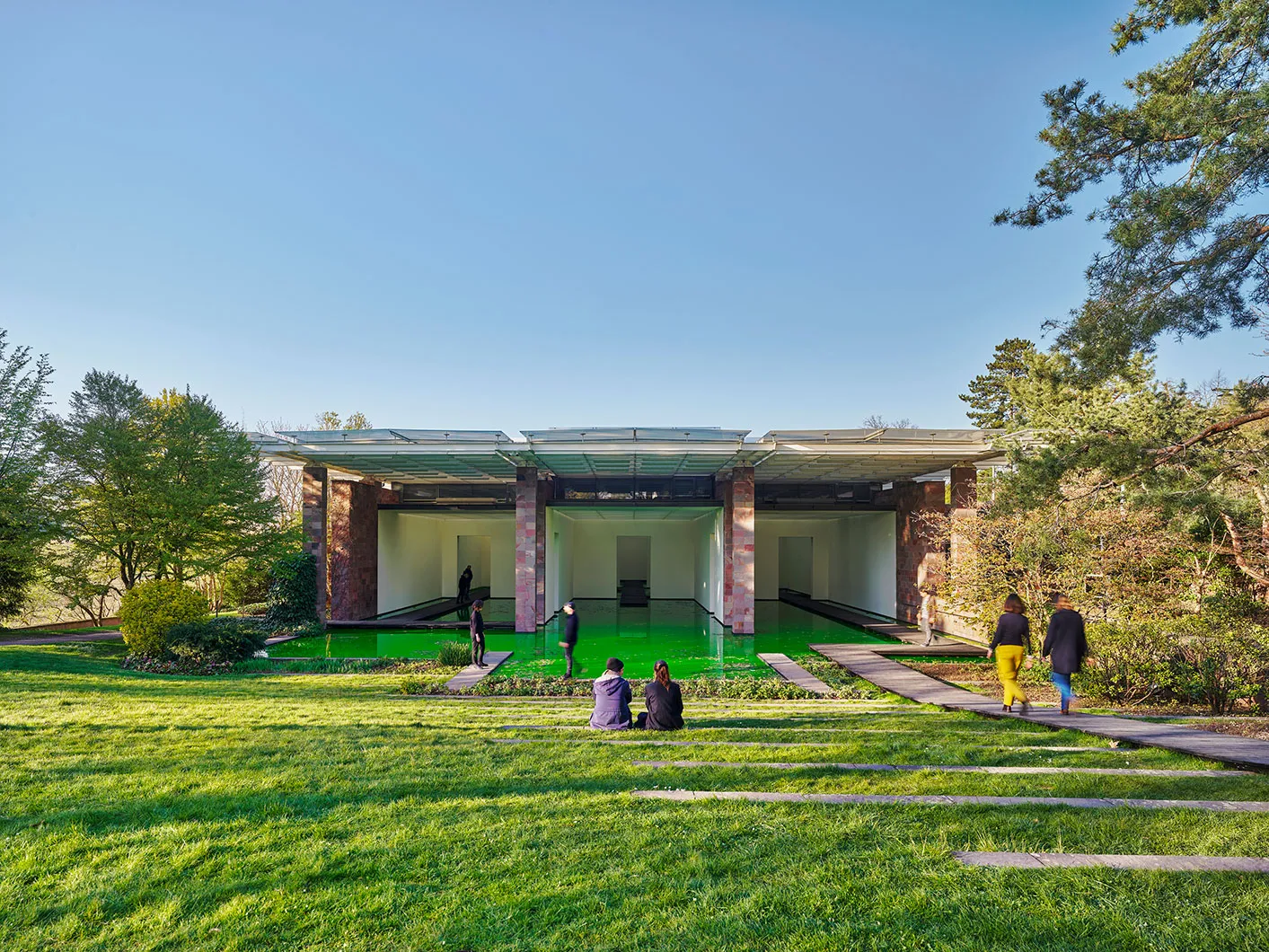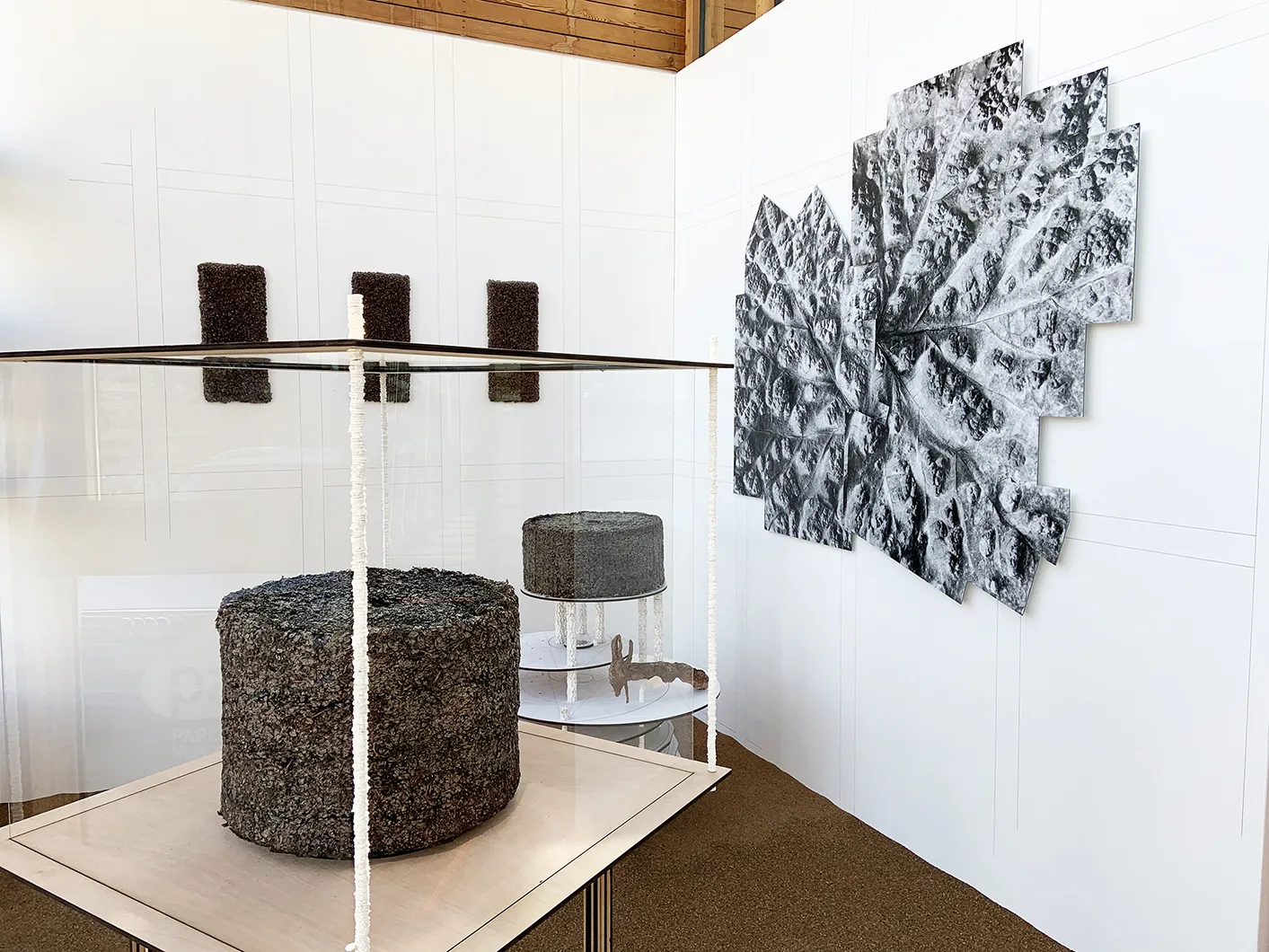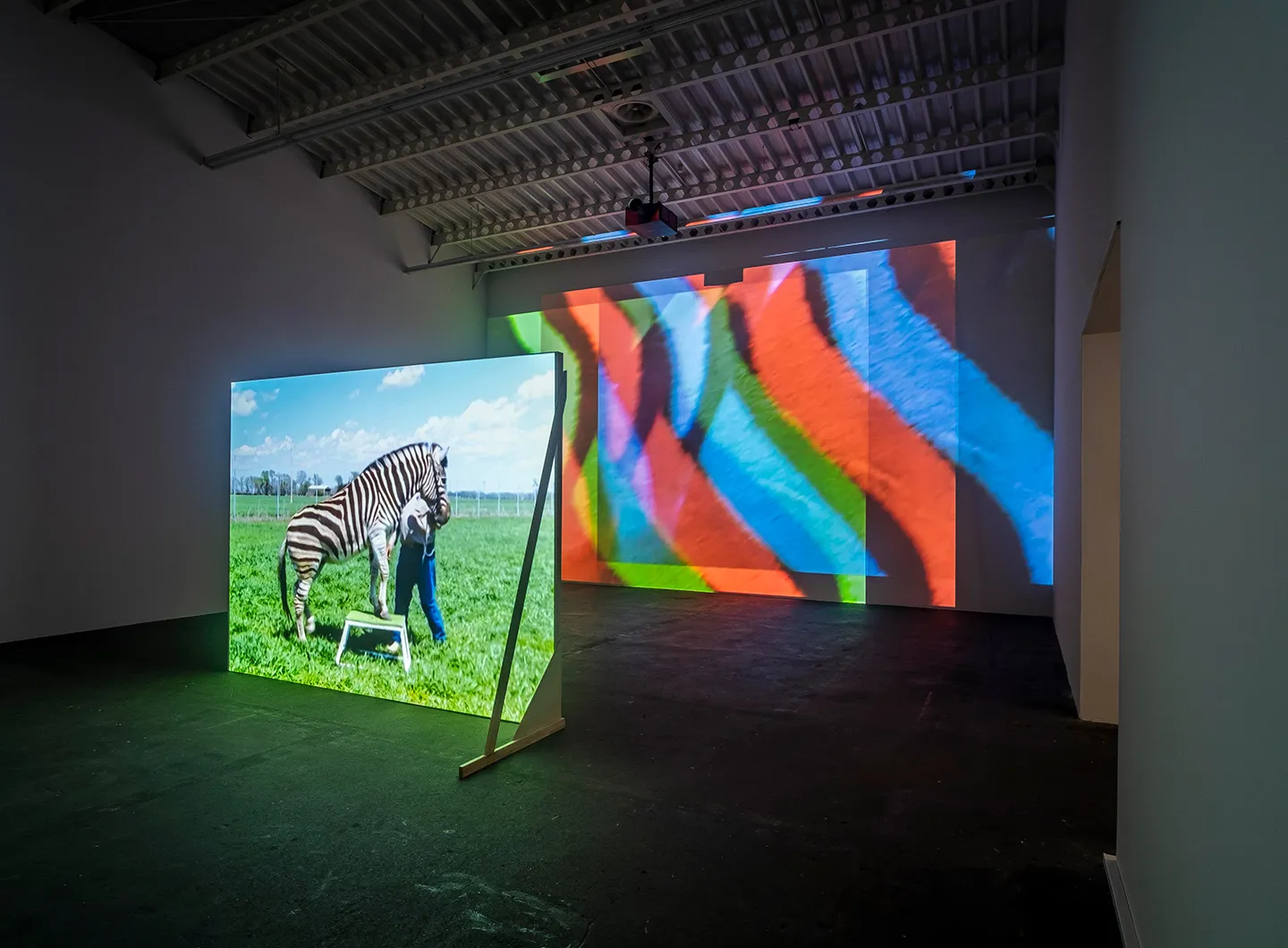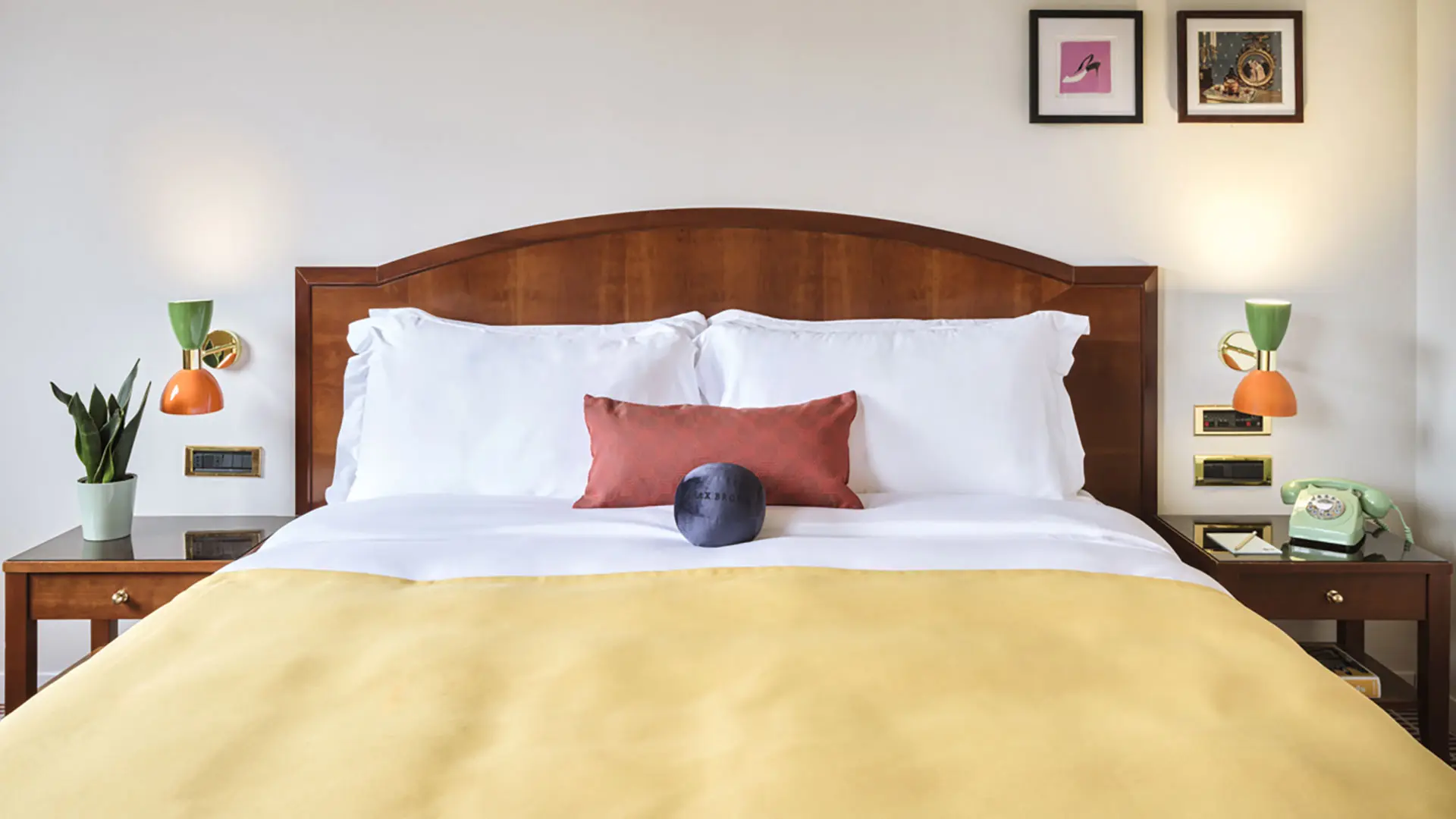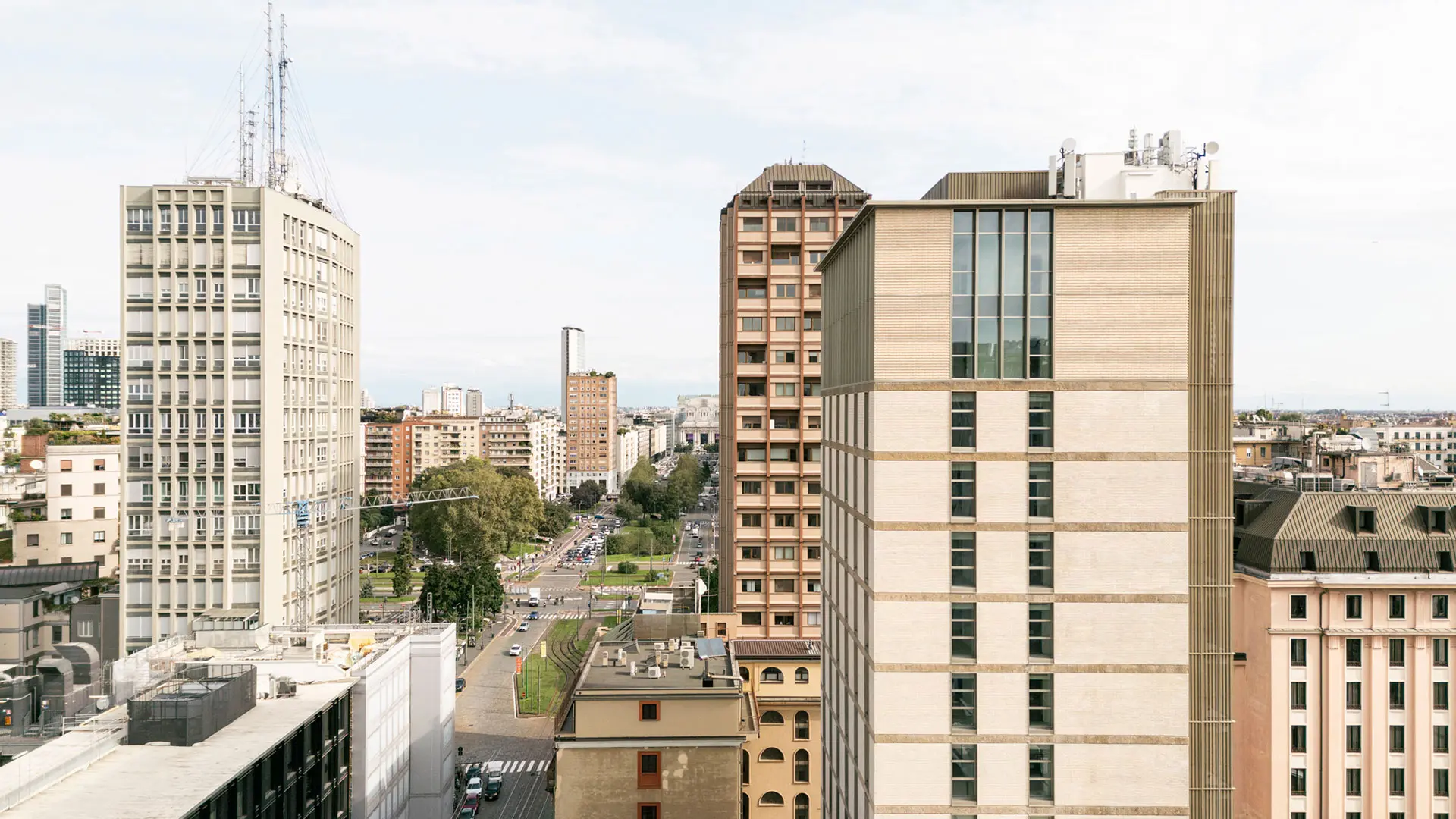In partnership with MiCodmc, a selection of establishments ripe for discovery during the 63rd edition of the Salone del Mobile.Milano, from 8th to 13th April
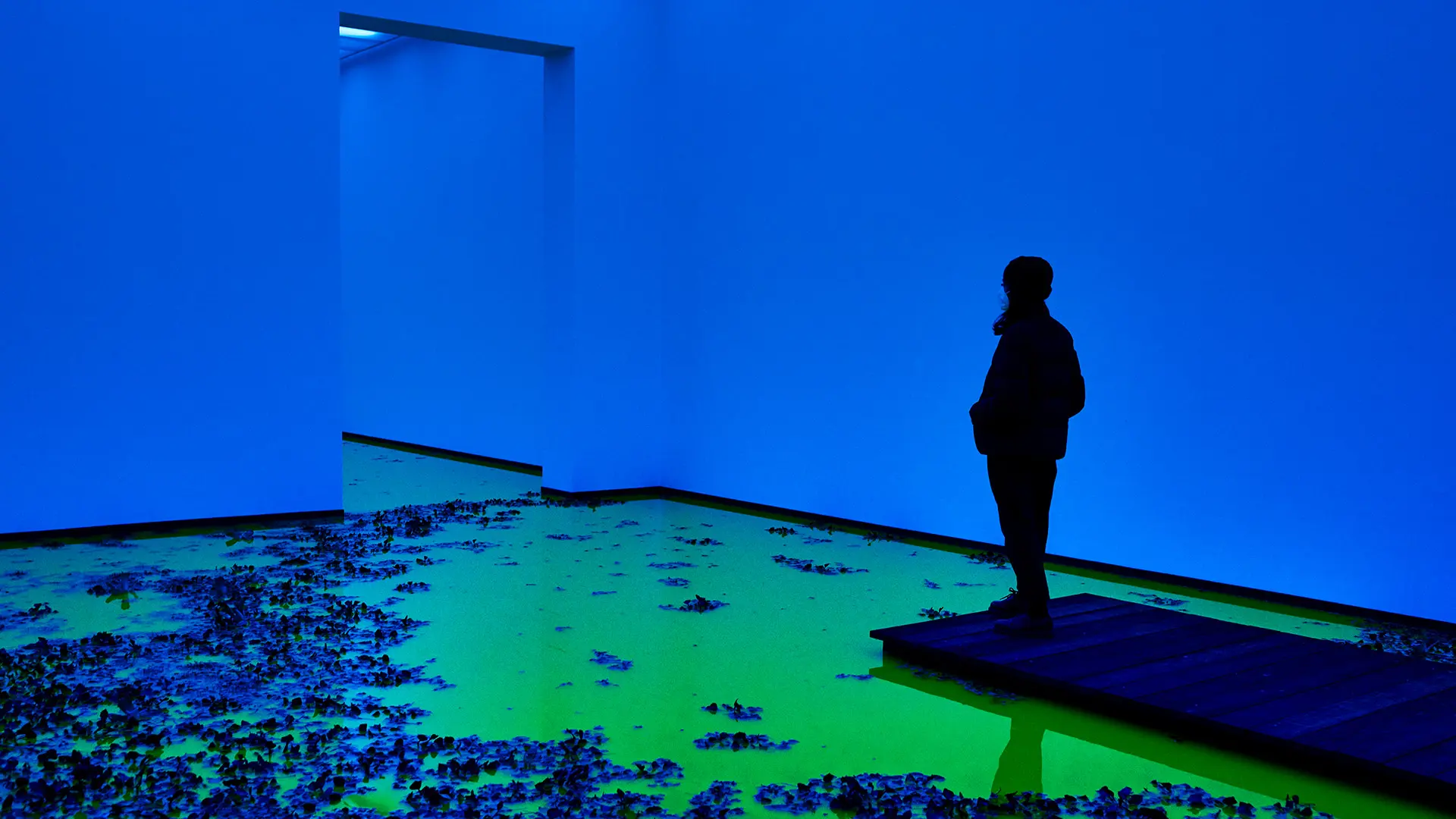
Olafur Eliasson. Life, view of the exhibition, Beyeler Foundation, Basel, 2021. Photos: Mark Niedermann
We’ve chosen seven exhibitions showing at some of Europe’s leading cultural institutions, in which contemporary architects, designers and artists reflect on contemporary environmental issues
The last few years have seen a growing collective awareness of ecological crises and the impact of human activities on the planet. It’s a complex subject, that needs to be tackled from myriad different angles.
The climate crisis is a “hyperobject” – as the philosopher Timothy Morton would say – that obligates us to recognise that “there is no outside” and that our existence plays out within a system of interconnections.
There are many artists, architects and designers who have recently come up with public reflections – exhibitions, installations, research programmes – geared to promoting a deeper understanding of the particular time in history we’re living through. We’ve made a selection of seven exhibitions being held in Europe, for those keen to embrace opportunities to explore this particular theme this summer.
Non-Extractive Architecture, Venice
As things stand, the construction sector is responsible for 39% of overall emissions of greenhouse gas produced by human beings. There’s therefore an urgent need for new ideas for achieving a better balance between the natural and the built environments. This has informed the studio Space Caviar’s complex exhibition programme and live research project entitled Non-Extractive Architecture, at V–A–C Zattere, in Venice.
What would happen if we modified our economies to favour integration, circularity, durability and social resilience through the towns and cities that we build? What would happen if the material supply chains on which the spaces we live in are reliant were visible and participatory, rather than invisible and often based on exploitation? These and other considerations are explored at the Palazzo delle Zattere in Venice until 31st January 2022.
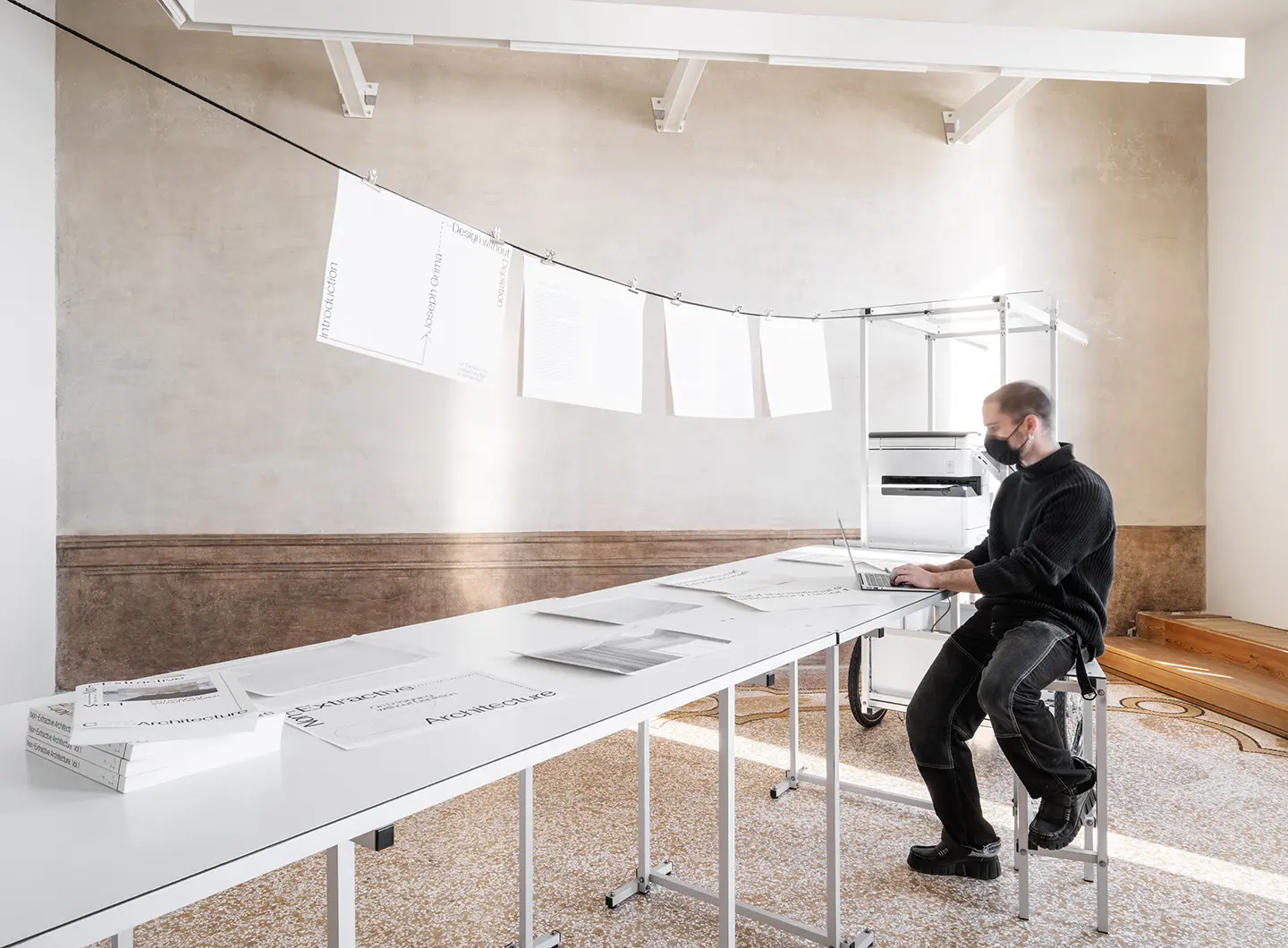
Non-Extractive Architecture, view of the exhibition, VAC Zattere, Venice, 2021. Photos: Marco Cappelletti
Cambio, Prato
The Formafantasma design studio has mounted an exhibition sparked by research into governance in the timber industry at the Luigi Pecci Contemporary Art Centre in Prato, open to the public until 24th October 2021. It is one of the productive activities with the highest economic and ecological impact in the world.
In collaboration with various experts in the science, engineering, environmental and philosophical policy sectors, the Italian design duo have come up with a thorough investigation. CAMBIO is a reflection on the role of trees as sources of information, sensors of global climate change and also as a solution to these changes, given their ability to absorb carbon dioxide.
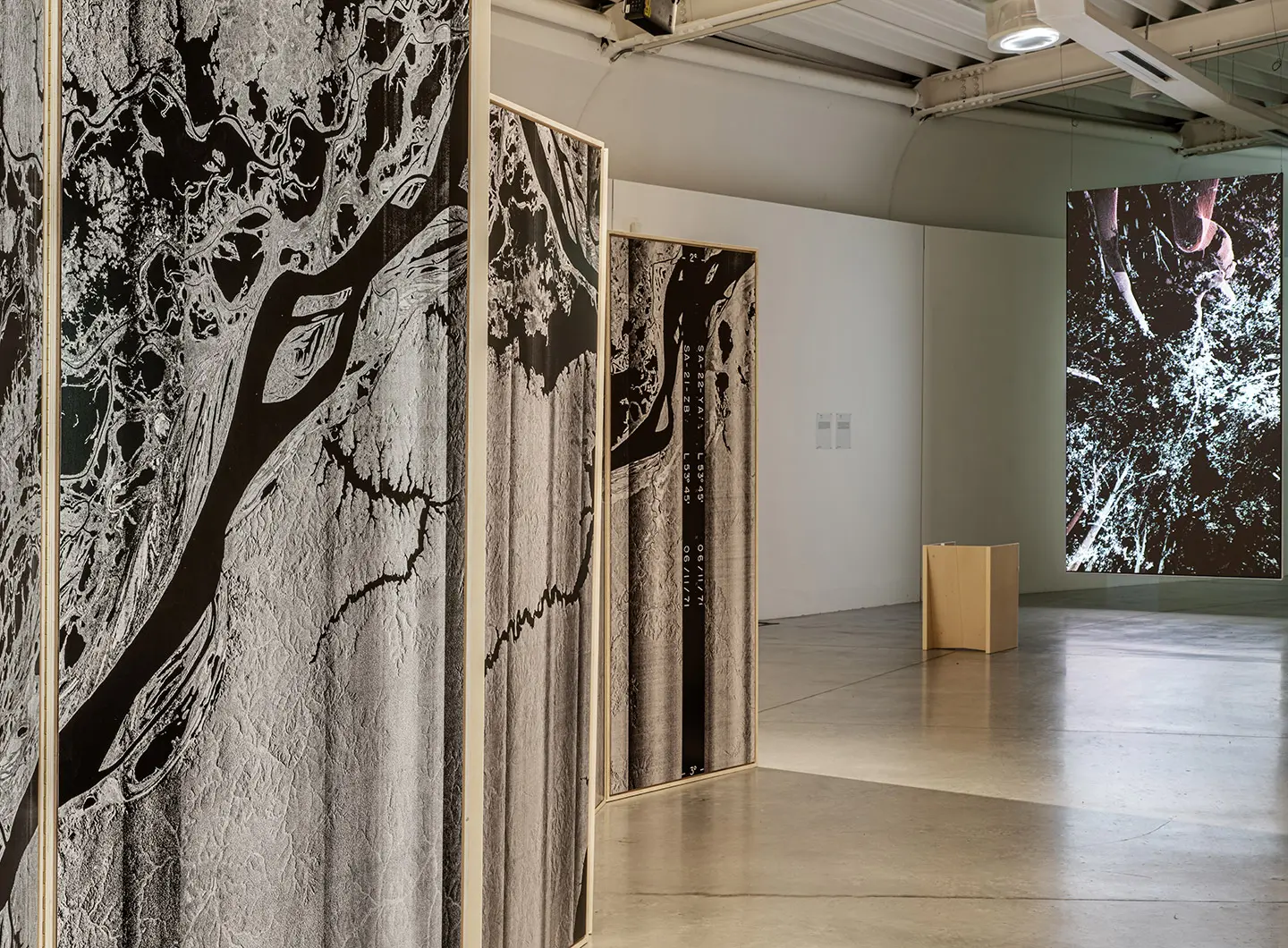
Formafantasma. Cambio, view of the exhibition, Luigi Pecci Contemporary Art Centre, Prato, 2021. Photos: Ela Bialkowska
Aquaria – Or the Illusion of a Boxed Sea, Lisbon
The nature/culture divide is a dichotomy, i.e. separate and distinct domains of reference on the basis of which humans largely tend to reason. The credibility of this sort of dichotomy, while still holding water in the usual sense, has now been undermined by a series of developments in both natural and human sciences.
Aquaria – Or the Illusion of a Boxed Sea (on until 6th September at the MAAT in Lisbon) tackles this complex theme with an exploration of the aquarium, an object that perfectly embodies the nature/culture issue. Curated by Angela Rui, the exhibition looks at how the sea has crept into our cities, homes and cultural institutions, asking how our cultures have come to absorb the notion of ocean kingdom.
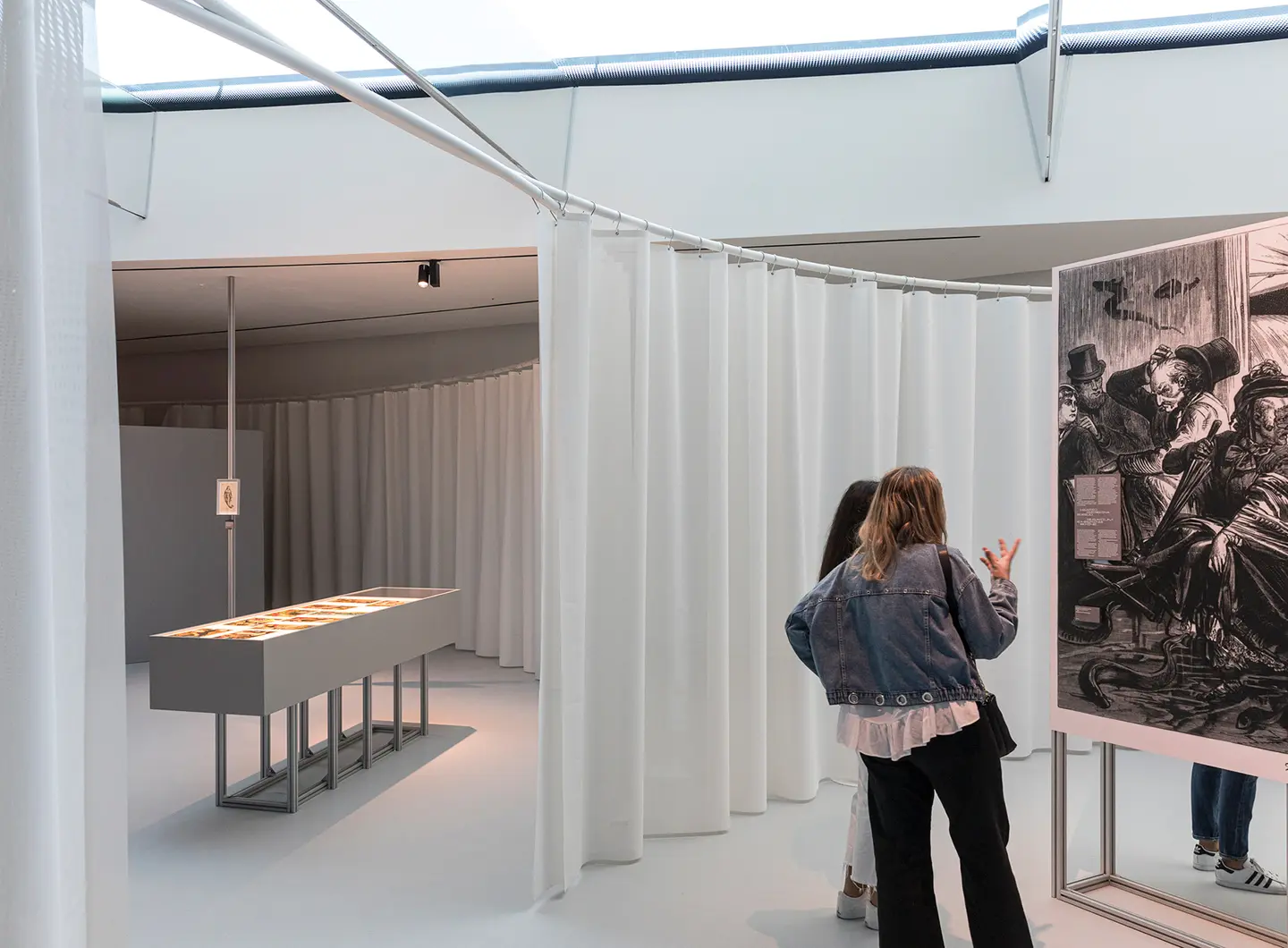
Aquaria – Or the Illusion of a Boxed Sea, view of the exhibition, MAAT, Lisbon, 2021. Photo: Laurian Ghinitoiu
Botanica Temporanea, The Art of Invisible Gardens, Florence
Manifattura Tabacchi presents Botanica Temporanea, The Art of Invisible Gardens, an interactive exhibition-workshop curated by the architect and landscape designer Antonio Perazzi. The project was inspired by the principle of gentle, low-impact environmental regeneration, designed to encourage the spontaneous growth of flora and fauna in order to rebuild a mutually beneficial long-term balance between nature and humans.
The exhibition features documents, material and talks around the subject, but also has an active element, which sees the Manifattura Tabacchi garden transformed with the planting of 1,555 exemplars, more than 50 different botanical species. This is geared to creating low-maintenance gardens that do not demand a huge financial outlay, designed to improve quality of life and environmentally rehabilitate extremely diverse spaces.


 Sustainability
Sustainability
